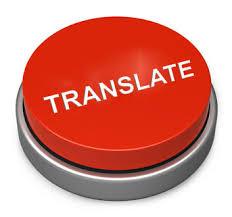Quran translation to English
A few translators have attempted and delivered an English translation of the Holy Quran.
Some are unknown; others, not. Amongst those well-known translations of the Holy Quran are those by Yusuf Ali, Muhammad Habib Shakir, Mohsin Khan and Muhammad Pickthal.
The effort put into the translation of the meaning of the Holy Quran by those translators is undeniably and undoubtedly tremendous.
Not only the length of the Quran but the intricate and sub-meaning of many of its verses and suras and their specific and diverse contexts make the translation of this holy book one of the most challenging tasks, even for the best translators in the entire world.
However, a few questions that remain:
Do these existing translations always make sense to the target reader?
Are these translations understandable to any native English speaker who has no idea whatsoever about the Arabic language - the language of the Quran?
Or should we actually encourage a fresh look at these translations with the aim of improving and enhancing them?
Native speakers
The translation of the Holy Quran from Arabic to English, after all, is aimed at introducing this holy book of Muslims – which is the Word of God – to speakers of the English language, who cannot appreciate its value in Arabic – because of the language barrier – and would like to learn and know more about the Quran.
So, the key premise for this hugely challenging but rewarding work is to ensure the translation – whilst conveying the original meaning of the Quran – is provided in English language that is clear and understandable to native English speakers.
“It does not make any sense” is a phrase that one hears over and over again from a native English speaker when they sometimes read and try to understand the meaning of a verse in the Holy Quran.
As a translator and English-language editor, I definitely sometimes sympathise with this statement. While the existing translations of the Holy Quran have been delivered by an elite group of translators, we have to agree that, apart from the Holy Quran and the Sunna of the Prophet, nothing is sacrosanct.
New translations – changing language
The English language is an evolving language, with more terms and expressions getting in and others becoming obsolete to use, let alone the informal, colloquial or literary forms of words.
The perceived meaning of words can also sometimes change over time, with some acquiring new meanings or becoming more associated with certain contexts and settings in terms of language usage.
For all these reasons, I believe that all existing Arabic to English translations of the Holy Quran should be revisited, reviewed, re-examined and improved by bilingual Arabic-English translators with great experience.
The aim should always be to ensure that while we are conveying the meaning of the Arabic-language verse, the output in English should always be clear, understandable, idiomatic and make sense to the English reader – the ultimate target audience.

